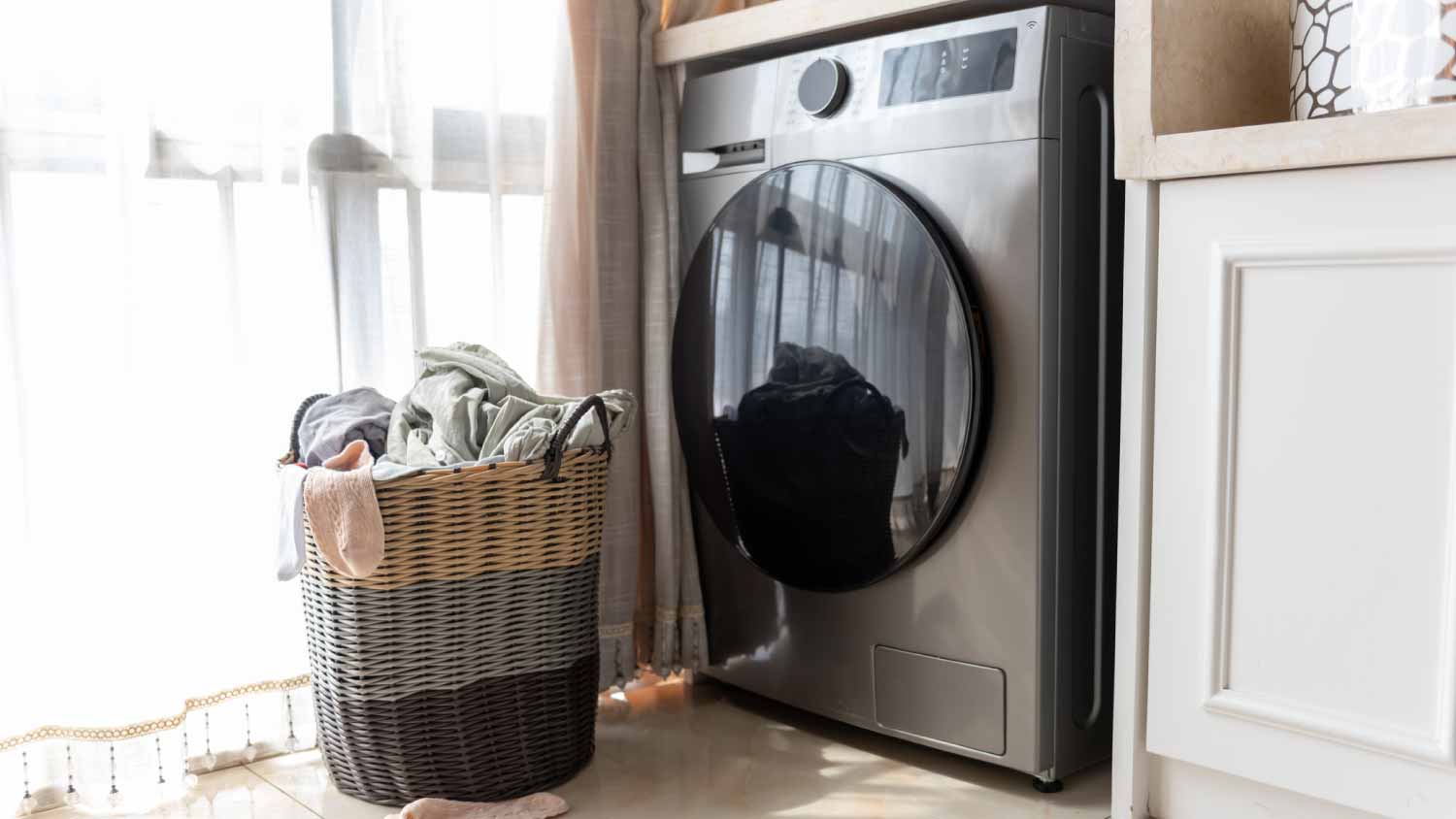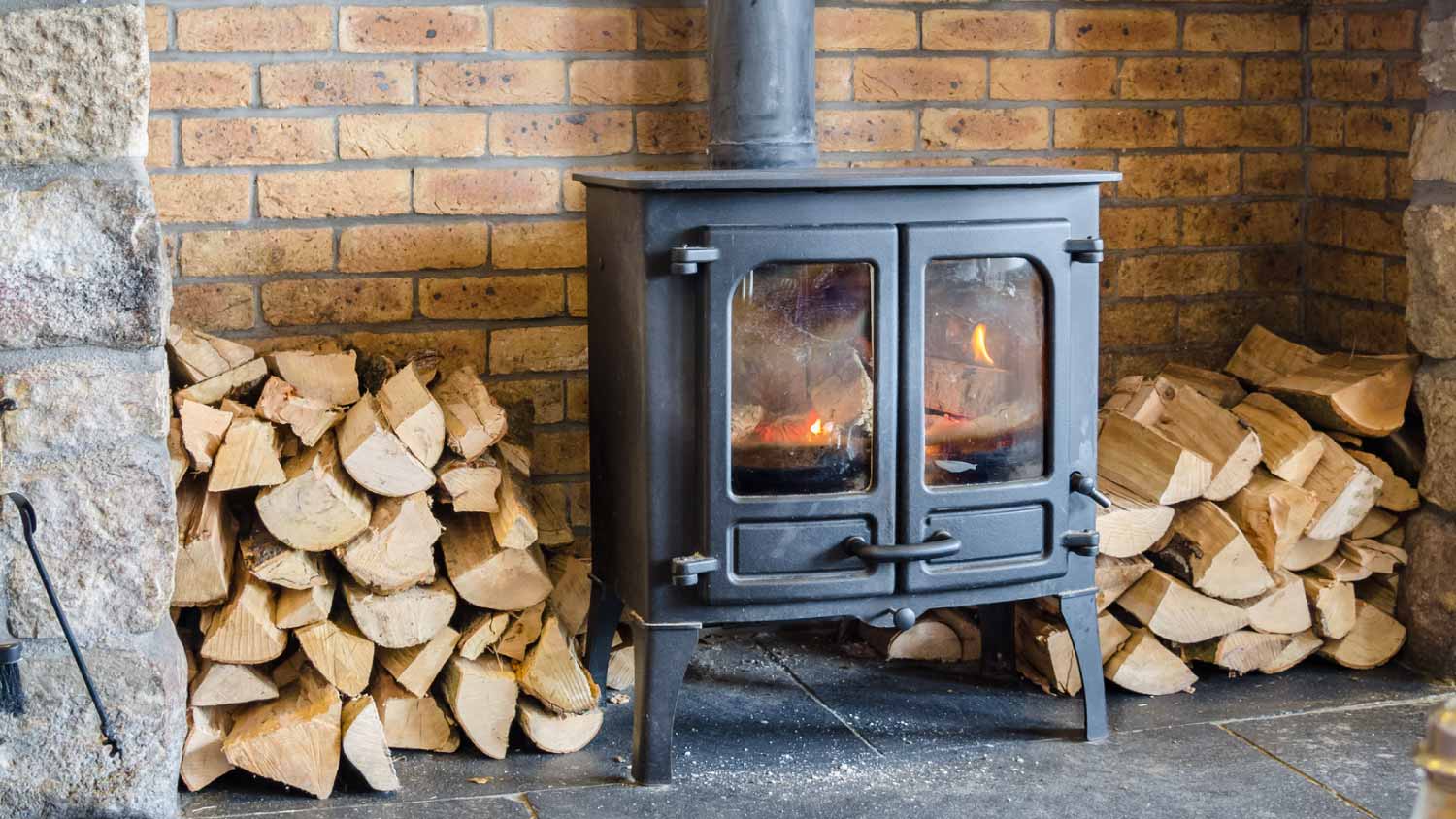6 Simple Tips to Rid Your Dishwasher of Lime and Hard Water Buildup
The streak struggle is real, but our experts have real solutions to rid your dishwasher of hard water and lime deposits


If you think about it, a dishwasher is a thing of magic: You close the door on dirty plates and glasses and open it a half-hour later to find nothing but sparkle and shine. But if you happen to live in one of the many parts of the country where hard water is an issue, you know that even the best dishwasher is no match for the lime and hard water mineral buildup that can occur naturally over time. Read on for 6 tips to minimize unwanted mineral deposits and help your magic machine do its dirty job.
What Does Limescale Look Like in a Dishwasher?
You’ll be able to spot limescale in a dishwasher when you see thick clumps of solid white or grayish residue coating the inside walls of the dishwasher.
If your home has hard tap water, you’ll probably deal with limescale sooner or later. This type of water has a high content of minerals such as calcium and magnesium. When heated, these minerals group together—or calcify—and get left behind when the water in your dishwasher dries. For this reason, limescale is also sometimes called hard water buildup.
What Causes Lime and Hard Water Buildup?
It’s a fact: lime buildup is pretty common in regions where a high mineral content causes what we call “hard water.” As water travels underground, it can be exposed to the minerals found in soil and rock, including calcium, magnesium, iron, copper, and even rust—each of which plays a significant role in the “hardness” of the water.
If we’re talking about lime deposits specifically, those come from calcium carbonate, which leaves a scale behind that can easily layer up over time. Simply put, if your dishwasher is constantly flushed with hard water, you’re at high risk for the unwanted lime buildup and hard water stains that are dulling your dishes.
How Often Should Your Dishwasher Be Descaled?
You should descale or deep clean your dishwasher once every six months to keep it running at its best. You should also do a deep clean whenever you notice dishes coming out of the dishwasher with gunk still stuck to them.
Regularly cleaning and removing residue from your dishwasher will allow soap and water to spray through the appliance at full strength. As a result, your dishwasher will clean your dishes more effectively, and your dishwasher will smell and look much fresher after use.
Reliable Remedies for Lime and Hard Water Buildup

The great news: You don’t have to be saddled forever with stuck-on stains or scaly lime deposits. All it takes is a dose of prevention and a little elbow grease, and you can stop lime and hard water buildup in its tracks. Interested? Learn how to delime and descale your dishwasher for spot-free dishes every time. Then check out these six easy tips to deal with hard water deposits.
1. Clean Your Dishwasher’s Filter Regularly
You’ve probably heard that it’s a great idea to clean your dishwasher from time to time. But did you know your machine has a filter that also needs some tender loving care? It’s pretty easy; just check your dishwasher’s manual to locate the filter and follow the instructions on how to remove it and clean it thoroughly.
Angi Pro Tip: Your filter is a bit of a delicate flower and can be easily damaged by aggressive scrubbing or metal scouring pads. Be gentle, and help prevent the need for dishwasher repair.
2. Up Your Grime Game With a Commercial Dishwasher Cleaner
It’s one thing to run your dishwasher when it’s empty just to give it a rinse, but it’s another to actually go out of your way to buy a dishwasher cleaner. Don’t skip this step.
Most professional dishwasher cleaners have ingredients that help to descale mineral deposits left behind by hard water. Regularly taking the time to use these products on your dishwasher could save you a serious headache down the line, from dishwasher issues to replacement.
3. Try Baking Soda and Vinegar Rinses
Notice spots on your glassware? Think hard water may be the suspect? Whip up this classic mineral- and lime-fighting remedy with ingredients you likely already have in your pantry. All you need is a bit of baking soda and vinegar.
Here are the steps to clean your dishwasher with vinegar and baking soda:
Add 1 cup of distilled vinegar to a bowl.
Place the bowl of vinegar in the dishwasher, nestling it on the top rack.
Run a cycle without any detergent until completion.
Open the dishwasher and sprinkle 2 tablespoons of baking soda across the bottom of the machine, including on the spray arm.
Run one more cycle.
"Regular baking soda and vinegar rinses not only help to stop the buildup of lime and hard water, but they also remove any unsavory scents and help in the degradation of leftover food debris," says Asya Biddle, Angi Expert Review Board member and manager of The Dust Busters janitorial company in Williamsport, PA.
How does this work? The vinegar and baking soda join forces to blast deposits loose, and without any dishes inside, the dishwasher rinses the residue right down the drain.
4. Take Good Care of the Heating Element in Your Dishwasher
Cutlery and casserole pans aren’t the only things that can be affected by lime and mineral deposits, your heating element (that magical tool that dries your dishes) is at risk, too. Luckily, all it takes is a little TLC to keep things running (and washing) smoothly.
Here’s how. While you’re inspecting your dishwasher for evidence of hard water deposits, don’t forget to examine and clean the heating element too. Can’t find it? It’s usually located at the back of your machine or on the bottom of the unit. You can always look up your model’s specifications on your manufacturer’s website if you’re unsure. When you do clean it, use a gentle sponge to avoid damage.
5. Upgrade With a Water Softening Unit
Sometimes a hard water problem is just too much for home sleuthing and pantry-friendly remedies. If you’ve tried everything and you’re still on a streaky streak with mineral deposits, you may want to consider a water-softening unit. Its job is simple: To soften your home’s water supply by removing the minerals that are naturally present in your hard water.
If this sounds like the right solution for your home, keep in mind that a water-softening unit can cost $1,000 and up.
6. Bring in an Experienced Pro
If you’ve drained all your options and a water-softening unit isn’t a practical consideration for your budget, you may want to look into hiring a dishwasher repair professional. This is especially true if you’re still seeing food particles on “clean” dishes or other issues that DIY solutions just aren’t solving.
Whether you're a homeowner who’s just moved into a new place, or if you’ve been dealing with lime and other hard water deposits for a while, it may be worth it to hire a professional for a closer look. A seasoned pro who knows water conditions in your area can help you find a solution that will bring a bit more brilliance to your every day.
How to Prevent Lime and Hard Water Buildup
Properly using and caring for your dishwasher can help you slow and prevent limescale and hard water buildup. Use these preventative tips to save time and stop stains from forming:
Descale your dishwasher once every six months.
Load dishes so that there's enough space between them for the spray arms to rotate properly and for water to reach all surfaces.
If your dishwasher has a self-cleaning sanitizing cycle, run it monthly.
If your washer doesn't have a sanitizing cycle, you can run a regular full cycle with store-bought foaming tablets designed to combat residue and buildup.
Adjust your water heater to set your dishwasher's temperature between 120 and 150 degrees Fahrenheit. This temperature range is the most effective for cleaning dishes.
Invest in a professionally fitted water softener.
Frequently Asked Questions
Descaling a dishwasher is important if you want to keep it working as efficiently and effectively as possible. Limescale builds up quickly in dishwashers that are used regularly, especially in areas with hard tap water. You need to descale your dishwasher regularly to ensure that your dishes come out clean.
Limescale can build up outside your dishwasher if you live in a home with hard tap water. Any household surface exposed to water and heat may have unsightly limescale deposits, including kettles for boiling water, sinks, countertops, toilets, taps, tubs, shower doors, glassware, and aquariums. Glass, laminate, porcelain, granite, and other similar surfaces can all have limescale.
Yes, descaling products do work. Before using any cleaning product, carefully read the product packaging for instructions on proper use. You should also consult your dishwasher owner's manual for full care and maintenance guidelines. Descaling solutions are typically effective at removing limescale and other mineral buildup within about 30 minutes.



.jpg?impolicy=leadImage)

- Appliance Repair Companies
- Washing Machine Repair
- Dryer Repair
- Refrigerator Repair
- Dishwasher Repair
- Oven Repair
- Wood & Pellet Stove Repair
- Freezer Repair Services
- Wood Stove Services
- Gas Stove Repair
- Emergency Appliance Repair Companies
- Ice Maker Repair
- Gas Appliance Repair
- GE Appliance Repair
- GE Refrigerator Repair
- GE Dryer Repair
- GE Dishwasher Repair
- GE Washing Machine Repair
- Samsung Appliance Repair
- Samsung Refrigerator Repair
- Samsung Dryer Repair
- Samsung Washer Repair
- Samsung Dishwasher Repair
- Samsung Oven Repair
- Whirlpool Repair
- Whirlpool Refrigerator Repair
- Whirlpool Washer Repair
- Whirlpool Dryer Repair
- Whirlpool Oven Repair
- Maytag Appliance Repair
- Maytag Refrigerator Repair
- Maytag Washer Repair
- Maytag Dryer Repair
- Maytag Dishwasher Repair
- Kitchenaid Appliance Repair
- Kitchenaid Oven Repair
- Kitchenaid Refrigerator Repair
- Kenmore Appliance Repair
- Kenmore Dishwasher Repair
- Kenmore Washer Repair
- Kenmore Dryer Repair
- LG Refrigerator Repair
- Bosch Appliance Repair
- Kenmore Refrigerator Repair
- LG Appliance Repair Services
- GE Microwave Repair
- Electrolux Appliance Repair
- Electrolux Washer Repair
- Kitchenaid Dishwasher Repair Services
- Wood Stove Inspection
- Dishwasher Installation
- Trash Compactor Repair
- Reasons Your Dishwasher Is Leaking from the Bottom and What to Do
- Dishwasher Not Cleaning? Reasons Why and What to Do
- How to Clean a Dishwasher Thoroughly and Keep It Running
- How Long Do Dishwashers Last?
- 5 Must-Follow Tips for a Healthy, Happy Dishwasher
- 11 Easy Tips to Use Less Water While Washing Dishes
- Why Your Dishwasher Is Not Filling Up With Water and What to Do
- 9 Tips for Taking on DIY Dishwasher Repair
- How to Clean a Moldy Dishwasher
- 3 Reasons Why Your Dishwasher Won’t Drain











